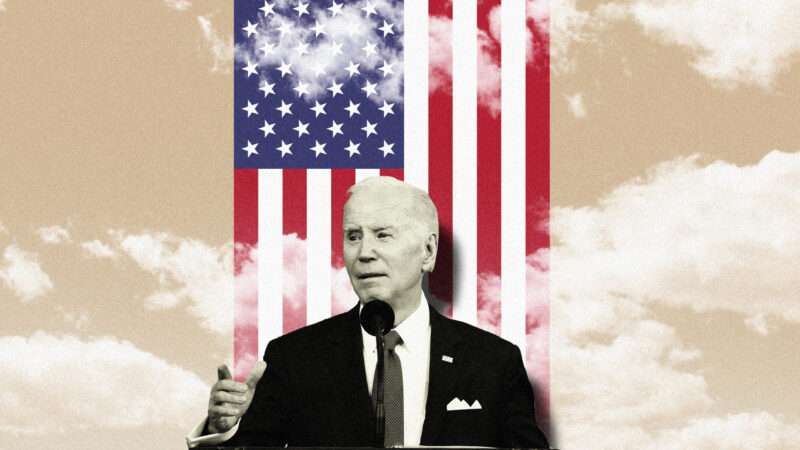
In his State of the Union address, President Joe Biden celebrated his reignition of the "cancer moonshot," intending to slash cancer deaths by 50 percent over the next 25 years. A key plank in this ambitious agenda is tackling the country's leading preventable cause of cancer, smoking.
To this end, the Biden administration will be "preparing further action to help people avoid smoking in the first place and support Americans who want to quit." These are likely references to the Food and Drug Administration's plan to ban menthol cigarettes and remove almost all of the nicotine in the cigarettes left on the market. It's unclear when either of these prohibitions will be implemented.
And given that youth smoking is nearly nonexistent, with just 2 percent of high school students smoking at least once in the past month, preventing a new wave of teen smokers is not an unrealistic or incredibly challenging aspiration.
However, around 31 million adults are regular smokers, or 12.5 percent of the population. In addition to preventing kids from smoking, Biden promises to "support Americans who want to quit," but his policies say otherwise. The FDA has banned more than 99 percent of e-cigarettes, which are safer than cigarettes, that were on the market when Biden assumed office in 2021.
Most of the public and a majority of physicians incorrectly believe e-cigarettes are just as dangerous or more dangerous than cigarettes. Yet, despite Biden's own FDA acknowledging this widespread misperception, the agency has done nothing to remedy the error. In December, a slew of public health experts wrote in the journal Addiction on the urgent need for public health authorities to correct the record on vaping.
Studies claiming e-cigarettes cause heart attacks and cancer have been retracted. Comprehensive evidence reviews such as those from King's College London and the Cochrane Library, the gold standard in evidence-based medicine; show vaping is safer than smoking and e-cigarettes are more effective than FDA-approved nicotine replacement therapies at helping smokers quit. Governments from Canada to New Zealand recognize the value of innovations like e-cigarettes in helping people quit smoking and reducing preventable cancer deaths.
What makes the Biden administration's hostility to tobacco harm reduction so puzzling is its mirroring of an equal and opposite enthusiasm for harm reduction policies to reduce the deaths from opioid overdoses. For example, the White House says it will expand access to naloxone, which is used to reverse overdoses.
It's also hard to square the Biden administration's anti-vaping policies with its drive to ban menthol cigarettes. According to the FDA, around half of the benefits of prohibition come from menthol smokers switching to menthol vapes. The FDA is so hostile to vaping that it even banned menthol e-cigarettes, which its scientists concluded would benefit public health.
Last year, after a series of missteps handling e-cigarette product applications and facing a wave of litigation, FDA Commissioner Robert Califf asked the Reagan-Udall Foundation (RUF) to evaluate the FDA's tobacco program. In December, the RUF delivered its verdict on the FDA's performance. The report found several failings at the FDA, including opacity and confusion regarding the agency's refusal to authorize safer nicotine products. The agency is set to respond to the report this month.
In a briefing following the State of the Union, White House cancer moonshot coordinator Danielle Carnival reiterated Biden's commitment to reducing smoking. Unfortunately, instead of embracing harm reduction, Biden's approach toward safer nicotine alternatives looks more like the drug war playbook of which he was such an ardent supporter.
The post Biden's Anti-Vaping Policies Undermine Cancer Moonshot appeared first on Reason.com.







